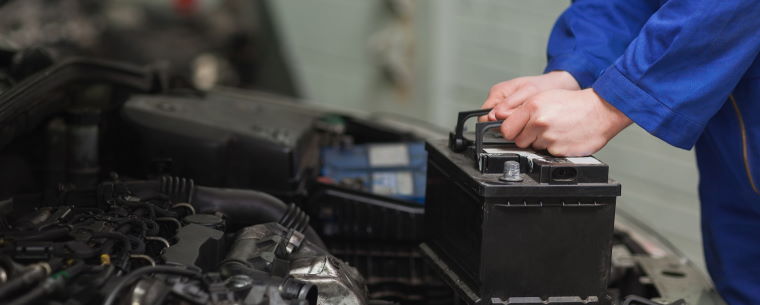Car battery results if you don't drive regularly
Published on: Thursday, 15 October 2020 | Author: Bradley Jando
Since the COVID-19 pandemic struck, more of us have been stuck at home in lockdown with our cars resting idle on the driveway. While it may be time for many of us to get back behind the steering wheel as we navigate out of lockdowns, the question still remains - what damage can not driving regularly do to my car battery?
It’s perfectly possible for your car battery to go dead if the vehicle sits motionless for extended periods of time. Even if your car isn’t going anywhere, its battery is still being used and this means it carries on draining. For example, it’s powering the car’s computer systems and alarms, even if you never fire up the engine. In hot weather, the heat will lead to your battery losing its charge even faster, too.
With all of this in mind, let’s take a closer look at the facts and how you can look after your battery so that it won’t drain so rapidly.
How Long Will My Battery Last if I Don’t Drive?
On average, a standard car battery holds its charge for around 4 weeks. However, this can vary greatly depending on the type of vehicle, how old the battery is, the climate, and whether your car has high-end electronics. Your battery will lose charge when the vehicle isn’t being used, since the alternator can’t do the job it needs to do – which is to act as a generator for the car’s electrical systems.
How Do I Store a Battery?
If you won’t be using your car for over a month, remove the battery from the vehicle when it is still fully charged. Check for any corrosion or cracks then use a mix of water and baking soda to clean grime from its terminals. However, if you see any signs of a battery leak then it’s best to take it to a professional to remove and replace – as battery acid can be extremely dangerous to handle.
Finally, choose a storage location – a well-ventilated and dry area which is typically between 5 and 15 degrees celsius. Take care to monitor the battery during its time in storage, testing it every 12 weeks with a voltmeter and recharging it once the charge has reached 70% or less.
What Happens if My Battery Has Already Died?
If you get behind the wheel and find that your car’s battery has already died, you could try to jump start the vehicle. However, this might not work if the battery is in bad condition. Usually, a battery that doesn’t have enough charge to start the car is only slightly below the threshold of power – so jump starting shouldn’t be a problem. But trying to jump start a battery that is severely depleted can actually damage the battery.
Your best bet here is to leave a 12v car battery charger attached to the battery overnight. It’ll trickle charge back up to full and thus avoid overpowering the battery.
At this point, you should try to start your car as normal, if this doesn’t work, then try to jump start. But if it fails to work, you’ll most likely need to replace the battery.
To avoid this extra expense, the best course of action is to take your car for a free car battery health check before you anticipate leaving your car static for an extended period of time. The team here at Tyre Pros can inspect your car’s battery free of charge, identify any possible issues, and then arrange to replace your battery if necessary. With our help, it couldn’t be easier to keep your vehicle’s battery in full working order - and you’ll never have to go through the hassle of a dead battery when you need to get to work in the morning.




